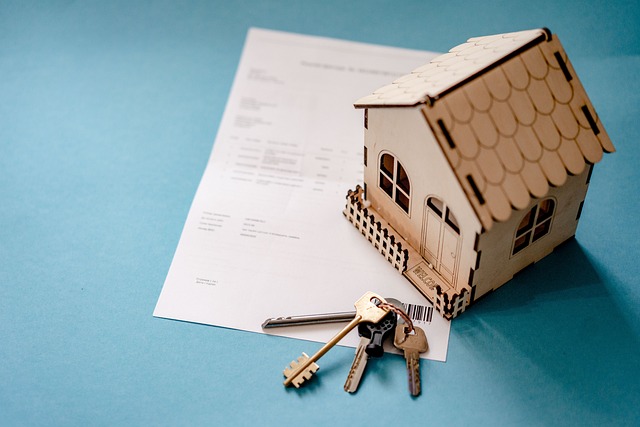E-commerce's growth has brought both opportunities and unique risks, emphasizing the need for Property and Casualty Insurance for Commercial Buildings. This insurance protects physical assets, data, and inventory from cyberattacks, natural disasters, and other perils, ensuring business continuity. It covers liability claims, business interruption, and equipment failure, enabling e-commerce businesses to focus on growth while mitigating financial losses. With evolving trends like omnichannel retailing and smart buildings, comprehensive insurance policies must adapt to protect assets across physical and digital platforms.
In today’s digital age, e-commerce has transformed traditional retail landscapes, creating new opportunities yet unique challenges. As businesses thrive in this virtual space, understanding the specific risks associated with their operations becomes paramount. This article delves into the intricacies of Property and Casualty Insurance for Commercial Buildings catering to the dynamic needs of e-commerce enterprises. From identifying common perils to navigating claims processes, it offers a comprehensive guide to safeguard against unforeseen events.
Understanding E-commerce and Its Unique Risks

E-commerce has transformed the retail landscape, offering businesses unprecedented opportunities to reach global audiences. However, this digital revolution also brings unique challenges and risks that traditional brick-and-mortar operations may not encounter. Online stores are vulnerable to cyberattacks, data breaches, and fraud, which can lead to significant financial losses. Additionally, e-commerce platforms often deal with high inventory turnover, making it crucial to manage stock efficiently to avoid financial strain and potential insurance claims related to spoilage or damage.
Given these risks, having comprehensive property and casualty insurance for commercial buildings is essential for e-commerce businesses. This includes coverage for physical assets like servers, computers, and inventory, as well as liability protection against legal claims arising from customer disputes or third-party incidents on the website. Such insurance ensures that e-commerce enterprises can continue their operations seamlessly, mitigating potential disruptions and financial setbacks.
The Importance of Property Insurance for Commercial Buildings

In the dynamic landscape of e-commerce, where physical retail spaces have evolved into vibrant hubs of digital trade, safeguarding your commercial assets remains paramount. Property and Casualty Insurance for Commercial Buildings is not merely an option; it’s a strategic necessity. Such insurance offers comprehensive protection against unforeseen events like fires, storms, theft, or vandalism that could disrupt operations and pose significant financial risks.
Beyond structural damage coverage, this type of insurance also protects valuable inventory, equipment, and business assets crucial for e-commerce success. In today’s digital era, where supply chains can be intricate and interconnected, Property and Casualty Insurance ensures uninterrupted service and customer satisfaction by mitigating potential losses that could cripple operations.
Common Perils and Hazards in E-commerce Spaces

E-commerce spaces, while offering exciting opportunities, come with their unique set of risks and potential hazards. From natural disasters like fire, flood, or severe weather events to man-made incidents such as vandalism, theft, or even cyberattacks, these perils can cause significant damage to commercial buildings housing online retail operations. Understanding these common threats is essential for businesses aiming to secure adequate property and casualty insurance coverage.
Key considerations include physical security measures against break-ins and theft, fire prevention systems, data protection protocols against cyber threats, and contingency plans for natural disasters. A comprehensive property insurance policy tailored for e-commerce enterprises should cover direct physical loss or damage to buildings, inventory, equipment, and business interruption losses resulting from insured events.
What is Casualty Insurance and Why is it Necessary?

Casualty insurance is a critical component of risk management for e-commerce businesses operating within commercial buildings. It protects against unforeseen events that can cause significant financial loss, such as fires, thefts, and natural disasters. These events can lead to property damage or complete loss, impacting not just the structure but also its valuable contents and inventory.
For e-commerce entities, having Property and Casualty Insurance for Commercial Buildings is essential due to their high-value assets and operations within a shared space. It ensures business continuity by covering expenses related to repairs, rebuilding, and even potential legal liabilities arising from these incidents. This insurance provides peace of mind, allowing businesses to focus on growth and expansion while mitigating the financial risks associated with unforeseen circumstances.
Assessing Your E-commerce Business for Insurance Coverage

When it comes to insuring your e-commerce business, understanding your operations is key. Begin by assessing the physical aspects of your enterprise, especially if you have a dedicated commercial building or warehouse. Property and casualty insurance for commercial buildings is essential to protect against unforeseen events like fires, thefts, or natural disasters that could disrupt your online sales channels. Consider the value of your inventory, equipment, and the potential downtime costs associated with damage or loss.
Additionally, evaluate the unique risks posed by e-commerce activities. This includes cyberattacks, data breaches, and liability claims related to customer returns or product damage during shipping. A comprehensive insurance policy should address these modern business challenges, ensuring your online store is shielded from financial losses that could cripple its growth.
Key Features of Expert Property and Casualty Policies

When it comes to protecting your e-commerce business, an expert property and casualty insurance policy is a cornerstone of risk management. These policies are designed to cover a wide range of potential perils that can threaten your commercial buildings and valuable inventory. Key features include comprehensive coverage for physical damage, such as fire, storm, or vandalism, ensuring your structures and assets are safeguarded. Additionally, business interruption coverage is a critical component, providing financial protection if your operations are disrupted due to insured events, allowing for swift recovery and continuity.
Casualty insurance plays an equally vital role by offering liability protection against claims of bodily injury or property damage to others on your premises. This is particularly important for e-commerce businesses that may host customers or have delivery personnel visiting their warehouses or distribution centers. The policy can also include specific coverage for data breaches and cyberattacks, which are growing concerns in the digital age, ensuring your business is shielded from financial losses arising from these modern-day risks.
Navigating Claims Process: A Step-by-Step Guide

Navigating the claims process is a crucial step in managing your e-commerce business’s risks, especially when it comes to property and casualty insurance for commercial buildings. The first step is to assess the damage and gather all necessary information. This includes taking detailed photos or videos of the affected areas and documenting any financial losses or disruptions caused by the event. It’s important to notify your insurance provider as soon as possible after discovering the loss or damage, typically within a few days.
Next, prepare a comprehensive claim submission that includes your policy details, a description of the incident, estimated repair costs, and any supporting documents like invoices or receipts. Once submitted, stay in regular communication with your insurance adjuster to ensure the process moves smoothly. Keep track of all correspondence, including emails and phone calls, as this documentation can be invaluable if there are any disputes or delays.
Trends Shaping the Future of E-commerce Insurance

The future of e-commerce is shaped by dynamic trends that demand a rethinking of traditional insurance models. With the rapid growth of online sales and diverse customer expectations, businesses need comprehensive Property and Casualty Insurance for Commercial Buildings to safeguard their assets and operations. One notable trend is the rise of omnichannel retailing, where customers seamlessly transition between physical stores and digital platforms. This shift necessitates insurance policies that offer consistent protection across all touchpoints.
Additionally, advancements in technology, such as automation, artificial intelligence, and data analytics, are transforming e-commerce logistics and customer interactions. These innovations create new risks and opportunities for insurers. For instance, smart buildings equipped with IoT devices require specific coverage to address potential cyber threats and data breaches. As e-commerce continues its relentless march, staying ahead of these trends is vital for both businesses and their insurance partners.
